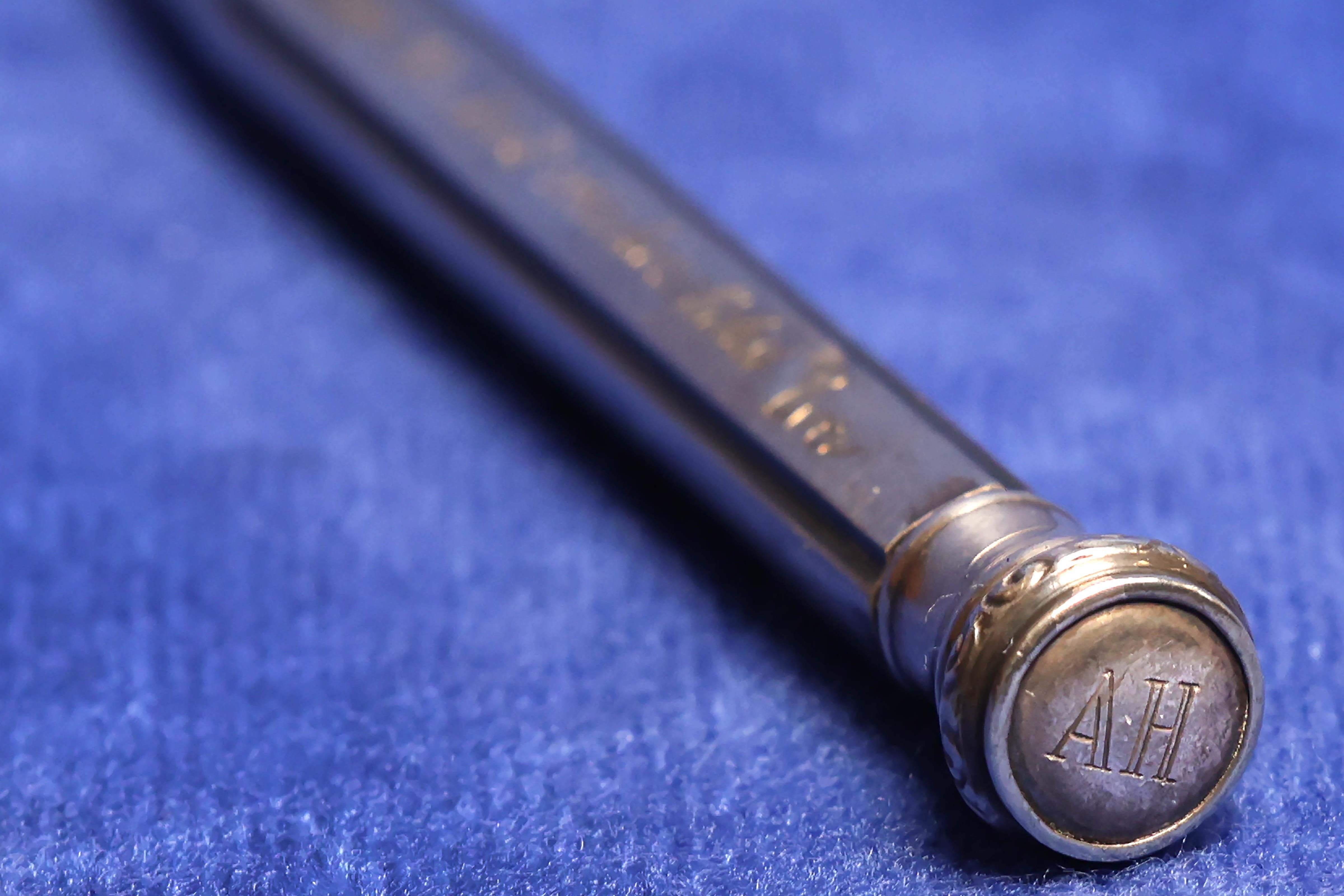Auctioneer urged to stop sale of Hitler-linked items
An ornate metal pencil, purported to have belonged to the Nazi dictator, is set to go under the hammer next week.

Your support helps us to tell the story
From reproductive rights to climate change to Big Tech, The Independent is on the ground when the story is developing. Whether it's investigating the financials of Elon Musk's pro-Trump PAC or producing our latest documentary, 'The A Word', which shines a light on the American women fighting for reproductive rights, we know how important it is to parse out the facts from the messaging.
At such a critical moment in US history, we need reporters on the ground. Your donation allows us to keep sending journalists to speak to both sides of the story.
The Independent is trusted by Americans across the entire political spectrum. And unlike many other quality news outlets, we choose not to lock Americans out of our reporting and analysis with paywalls. We believe quality journalism should be available to everyone, paid for by those who can afford it.
Your support makes all the difference.An auctioneer in Northern Ireland has been urged to stop the sale of a pencil which purportedly once belonged to Nazi leader Adolf Hitler.
The ornate silver-plated pencil is set to go under the hammer in Belfast next week as well as a signed portrait of the notorious dictator who led the regime responsible for the Holocaust.
The pencil is estimated to sell for between £50,000 and £80,000, while the photograph is expected to sell for between £10,000 and £15,000.
The chairman of the European Jewish Association, Rabbi Menachem Margolin, has written to Karl Bennett, managing director of Bloomfield Auctions, asking him to withdraw the items.
He questioned whether the auction house would sell possessions belonging to a terrorist who committed an atrocity in Northern Ireland, such as the IRA bombing of La Mon hotel in 1978 on the outskirts of east Belfast which killed 12 people.
In his letter to Mr Bennett, Rabbi Margolin said he is making a moral appeal.
“I am writing to respectfully ask you to withdraw these items from the auction. This is not a legal appeal to you Mr Bennett, but very much a moral one,” he wrote.
“In comments attributed to you in a national newspaper, you say: ‘But for me, as a high-end collector of militaria items, they preserve a piece of our past and should be treated as historical objects, no matter if the history they refer to was one of the darkest and most controversial in recorded history’.
“We simply cannot fathom how a love trinket such as an engraved pencil or a signed photograph constitutes a historical object of any inherent historical value.”
The rabbi went on to say that in Europe and further afield, auction houses are buying and selling other items such as watches, ashtrays and even Wehrmacht toilet paper purported to have belonged to senior Nazis.
“The defence from Munich to Maryland is the same, these items are of historical interest. They are anything but,” he wrote.
“Let there be no doubt, items of genuine historical interest do belong in museums or places of learning. This we fully support.
“But the buying and selling of items such as yours are dangerous on a number of fronts: they create a macabre trade in items belonging to mass murderers, the motives of those buying them are unknown and may glorify the actions of the Nazis, and lastly their trade is an insult to the millions who perished, the few survivors left, and to Jews everywhere.”
He concluded his letter: “What is sold and to whom is a matter of public decency and moral responsibility at the end of the day.
“It is in this spirit of decency that I ask you again to withdraw the Nazi auction items, to send a message that some things particularly when so metaphorically blood soaked, should not and must not be traded.”
Earlier this week Mr Bennett defended the sale of the items, telling the PA news agency: “I understand why some people may struggle to understand why items like these are sold and collected, but for me, as a high-end collector of militaria items, they preserve a piece of our past and should be treated as historical objects, no matter if the history they refer to was one of the darkest and most controversial in recorded history.
“These items give us concrete ties to the past so that we can never forget.”
A spokesman for Bloomfield Auctions said: “Bloomfield Auctions is a specialist auction house for militaria across all centuries.
“All items are a part of history, and we shouldn’t be writing history out of books or society.
“In my experience those who buy such items are legitimate collectors who have a passion for history.
“We do not seek to cause hurt or distress to any one or any part of society.
“All items have a story and tell of a particular time in history.”